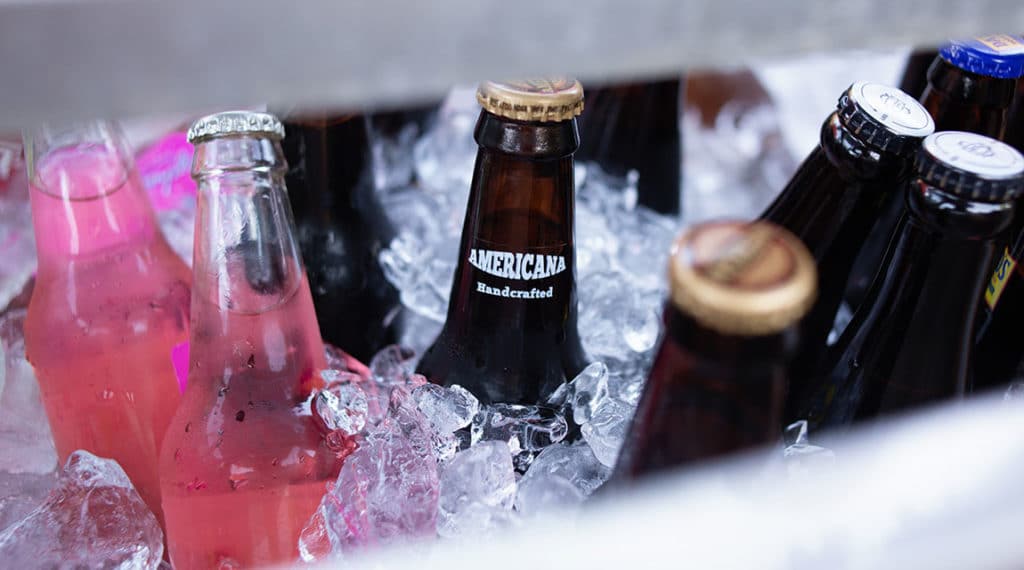About Teen Alcohol Poisoning
Consuming alcohol significantly alters mood, behavior, and neuropsychological functioning. That’s why many people turn to alcohol as a way to relax, escape, or socialize. But drinking while underage can cause significant developmental problems. Due to the fact that their brain and other organs are still developing, adolescents are more susceptible to becoming dependent. This dependency raises the chances of teen alcohol poisoning.
Alcohol Poisoning Statistics
- Approximately 2,200 alcohol-poisoning deaths occur each year in the United States.
- 5 percent of alcohol poison deaths happen to people aged 15–24.
- 76 percent of the victims of alcohol poison-related deaths are men.

What Causes Alcohol Poisoning
The body absorbs alcohol faster than food. It reaches our bloodstream faster, and the liver works to filter it out of our blood.
However, the liver can process only a limited amount of alcohol—approximately one drink of alcohol every hour. If a person consumes more than one standard drink within an hour, the liver can’t keep up with processing the toxins.
Even when someone stops drinking, there is a risk of alcohol poisoning as their body continues to absorb the alcohol they consumed. Blood alcohol level can continue to rise for up to 30 or 40 minutes after they stop drinking.
Therefore, the more teens drink, especially in a short period of time, the greater their risk of alcohol poisoning.

Tipsy vs. Drunk
You have probably heard the terms “tipsy” or “buzzed” to reference being slightly drunk. While being tipsy might not be as risky as being drunk, it is still risky, because it is a stage of being drunk. Moreover, the terms “wasted” and “hammered” refer to the highest level of intoxication.
The initial euphoria of being tipsy precedes confusion, impaired judgment, exaggerated emotions, feeling sick, unconsciousness, and, in the worst-case scenario, death. The chances of this tragic outcome are higher for adolescents with underdeveloped frontal lobes. Because the teen brain is immature, the areas governing executive functioning—including the ability to make smart, risk-averse choices—aren’t fully online yet.
Women generally have a higher chance of becoming drunk, due to being smaller on average, having less of the enzyme that breaks down alcohol, and other factors. Despite the fact that women are more susceptible to the effects of alcohol, men account for 76 percent of alcohol poison deaths, according to 2015 statistics from the Centers for Disease Control.
Find out more about the risks of teen binge drinking.

What Qualifies as Binge Drinking?
So-called “patterned drinking” that raises an individual’s blood alcohol concentration (BAC) to 0.08 grams percent or over constitutes binge drinking, according to the National Institute on Alcohol Abuse and Alcoholism. Men are twice as likely to binge drink than women, and binge drinking is most common among adults aged 18–34.
One drink is defined as:
- 12 ounces of beer (about 5 percent alcohol)
- 8 to 9 ounces of malt liquor (about 7 percent alcohol)
- 5 ounces (of wine (about 12 percent alcohol)
- 1.5 ounces of 80-proof hard liquor (about 40 percent alcohol)
Mixed drinks may contain more than one serving of alcohol and take even longer to metabolize.
Most experts define a lethal dose of alcohol at about .4 percent, or about four times the current legal limit in most states. However, there are many cases in which death has occurred from alcohol poisoning at much lower levels. For a 100-pound teenager drinking very quickly, about eight to 10 drinks in an hour would be required in order to reach a lethal level.

What Are the Symptoms of Being Drunk?
Chances are you have seen or recognized the symptoms of being drunk. Identifying these early signs can be key to preventing alcohol poisoning. Symptoms to watch for include the following:
- Debilitated balance
- Anxiety or feelings of restlessness
- Vomiting and nausea
- Seizures
- Confusion and slurred speech
- Irregular breathing and other respiratory issues
- Irritability and increased willingness for physical altercation
- Blue-tinged skin or pale skin
- Reduced body temperature (hypothermia)
- Blacking out
Read “How Teens Can Get Drunk Without Alcoholic Beverages.”

Risk Factors for Alcohol Poisoning
A number of factors can increase a teen’s risk of alcohol poisoning. These include:
- Size and weight
- Overall health
- Having an empty stomach
- Combining alcohol with other drugs
- The percentage of alcohol in the drinks
- How quickly the alcohol is consumed
- Personal tolerance level

Consequences of Alcohol Poisoning
Alcohol poisoning can result in severe and even deadly consequences and complications. These include the following:
- Choking: Alcohol may cause vomiting. Furthermore, drinking depresses the gag reflex. Therefore, this increases the risk of choking on vomit if a teen is unconscious.
- Interruption of breathing: Asphyxiation can occur if a teen accidentally inhales vomit into their lungs.
- Dehydration: Vomiting can result in severe dehydration. Consequently, this leads to dangerously low blood pressure and accelerated heart rate.
- Seizures: If a teen’s blood sugar level drops low enough, seizures may result.
- Hypothermia: Alcohol causes the blood vessels to expand, resulting in more rapid heat loss from the surface of your skin. Thus, alcohol poisoning can result in the body temperature dropping so low that it leads to symptoms of hypothermia, including failure of the cardiac and respiratory system.
- Irregular heartbeat: Alcohol poisoning can cause the heart to beat irregularly or even stop.
- Brain damage: Heavy drinking may cause irreversible brain damage.
- Death: Any of the issues listed above can lead to death.
How to Help a Teen with Alcohol Poisoning
If you suspect that someone has alcohol poisoning, seek medical care by calling 911 or your local emergency number immediately.
What to Do While Waiting for Help
- Try to keep them sitting up. If they have to lie down, make sure to turn their head to the side to help prevent choking.
- Keep them awake if at all possible.
- If they will take it, give them water to drink.
- Get as much information as you can about how much and what they have been drinking to tell hospital or emergency personnel.
What Not to Do
- Don’t leave the person alone. Someone with alcohol poisoning is in danger of choking on their vomit.
- Never try to make the person vomit as this could also cause choking.
- Do not assume the person will sleep off alcohol poisoning. It is possible for them lose consciousness while asleep.
- Offering them coffee or caffeine will not counteract the effects of alcohol poisoning.
- A cold shower is not a good idea, as the shock of cold can cause a loss of consciousness,
- Don’t encourage them to walk it off. Walking it off does not increase the speed at which alcohol leaves the body.

Treatment for Alcohol Poisoning
Once medical professionals take charge, they may perform a number of treatments. Often, this involves supportive care while the body rids itself of the alcohol toxins. This typically includes the following:
- Careful monitoring of the person to prevent breathing or choking problems
- Oxygen therapy
- Fluids given through intravenously to prevent dehydration
- Giving vitamins and/or glucose to replenish nutrients
- Inserting a tube into their windpipe to ease breathing difficulties
- Pumping the stomach using a tube that goes down their mouth or nose
- Hemodialysis to remove waste and toxins from the system. This is typically administered when someone has accidentally consumed methanol or isopropyl alcohol.
Three Ways to Prevent Teen Alcohol Poisoning
- Communicate with teens. Parents need to talk to teenagers about the dangers of alcohol, including binge drinking and alcohol poisoning. Research shows that children whose parents communicate their expectations around alcohol use are less likely to start drinking.
- Don’t let children or teens have access to alcohol or products that contain alcohol. In one survey, two out of three teens said it was easy to get alcohol from their homes without parents knowing about it. Parents may want to consider locking up alcoholic beverages or not keeping alcohol in the house. To protect small children, alcohol-containing products, including cosmetics, mouthwashes and medications, should be stored out of their reach or in bathroom or kitchen cabinets with childproof latches.
- Seek help if you know your teen has been drinking. Professional care by medical and mental health experts can help teens to address the root causes of alcohol use. Therefore, it can save teens’ lives.







